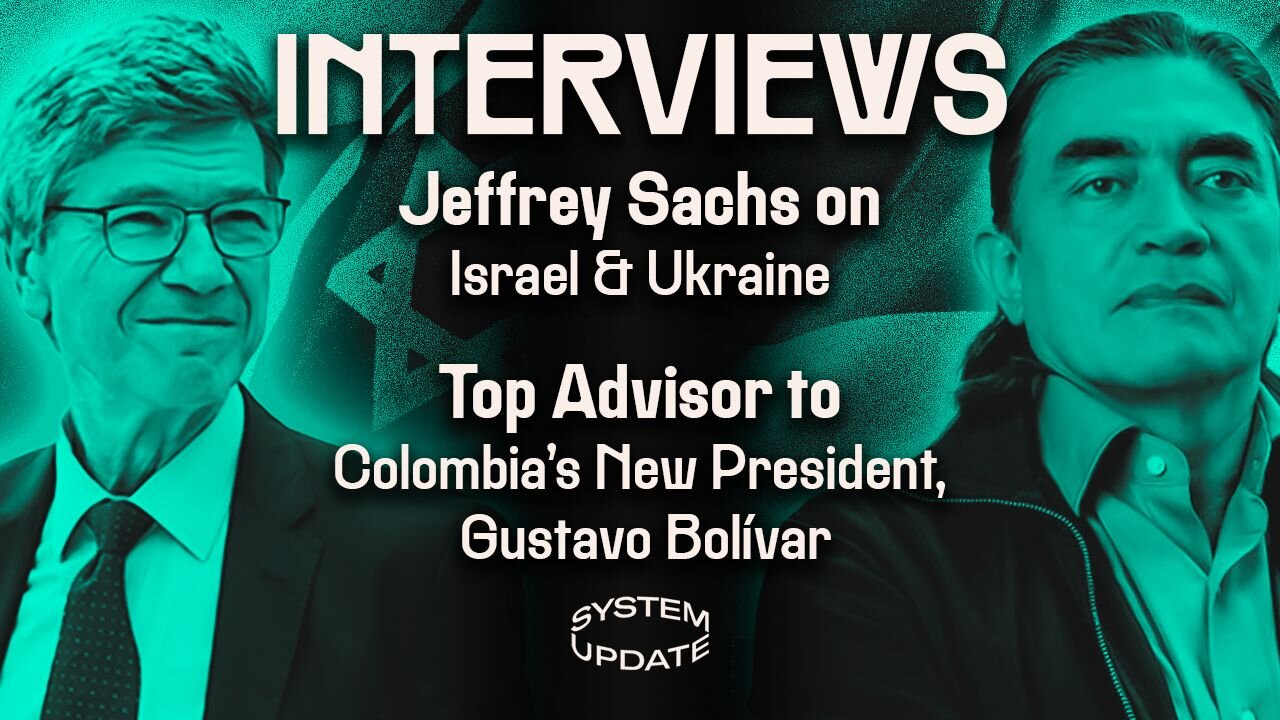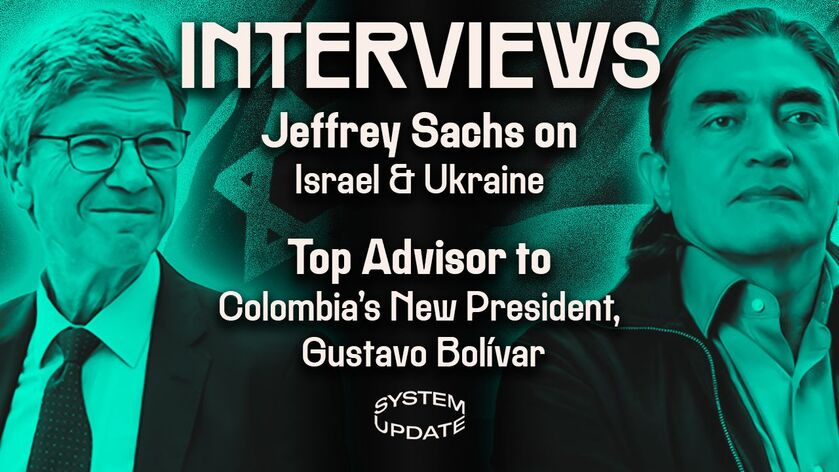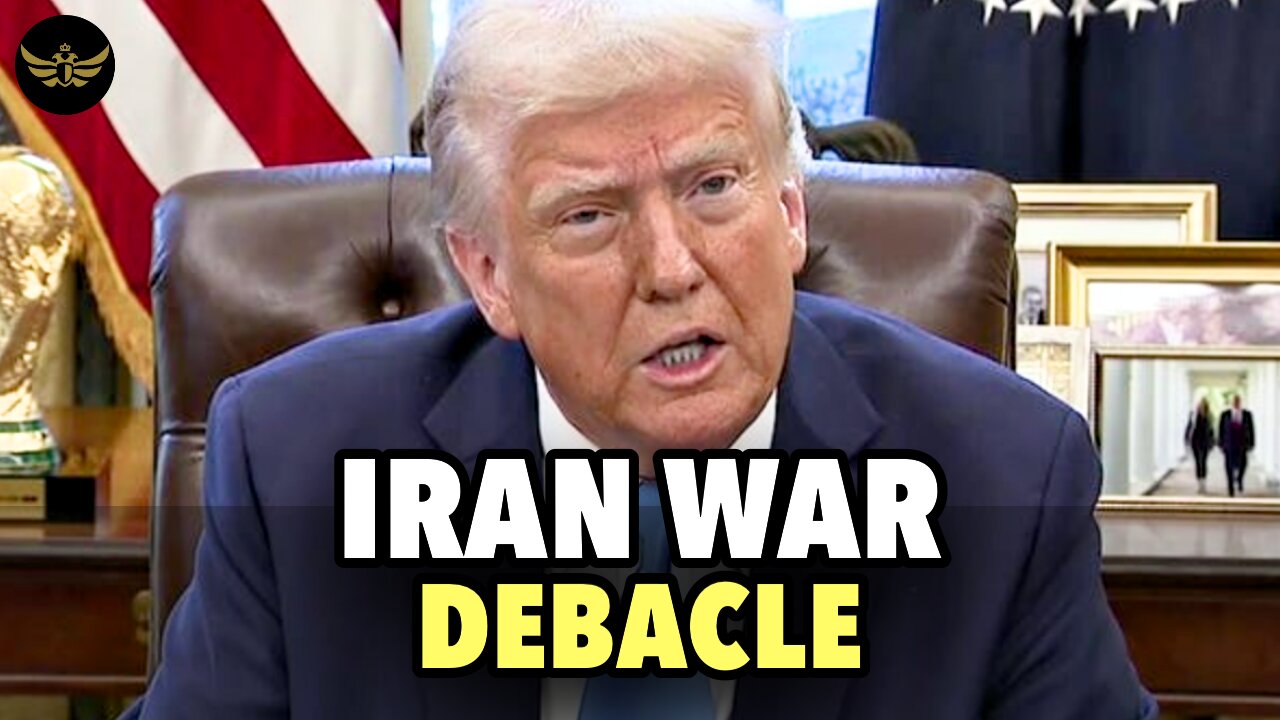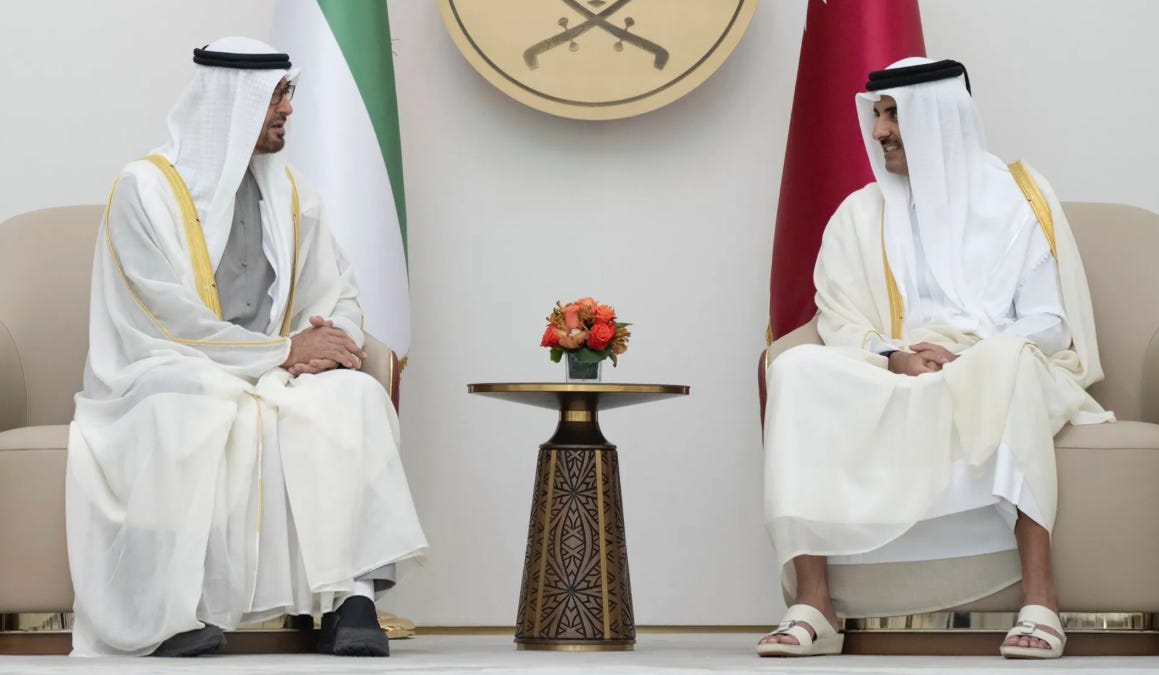Watch the full episode here:

Good evening. It’s Friday, February 16.
Tonight, we present two very different, though very informative, interviews that we conducted late last week. Both shed significant light on U.S. wars and U.S. foreign policy, but also the political situation in multiple other countries. First, we speak to someone who has become a regular guest on our program. One of the most popular guests we have: Jeffrey Sachs, the international economist and Columbia University professor who spent much of his life in high and prestigious positions inside international establishment institutions, advising the World Bank, helping guide multiple countries out of debt, bankruptcy, being a very valued advisor to several presidential administrations, all while being one of the loudest and most effective critics of establishment dogma, he has lately become one of the most aggressive critics of the Biden administration’s foreign policy, from the U.S. support for the bloody and futile war in Ukraine to its financing and arming of Israel's destruction of Gaza, to the various escalations and conflicts the Biden administration is pursuing in multiple countries in the Middle East. We speak to Sachs tonight about the current situation, the war in Ukraine, the inability of Congress to authorize $60 billion more for Ukraine and $17 billion more for Israel, whether this difficulty reflects a change in political sentiments among Americans about financing foreign wars, we speak to him about the war in Gaza, the various wars in the Middle East, and much more.
Then, we speak to one of the most important and influential figures in Colombia, where all sorts of complex, interesting and revealing political debates are unfolding. In 2022, that country elected its first left-wing president, Gustavo Petro, after decades of right-wing leaders who were highly loyal to the United States and followed the same ideological path. Gustavo Bolívar is the person who is Petro's closest advisor—the Spanish newspaper El País called him Petro’s Apostle. He is actually best known as an author of critically acclaimed and internationally well-read novels, most notably the international bestseller “Without Tits There is No Paradise”—"Sin Tetas no hay Paraiso”—I think it sounds less crude in Spanish, but that's the translation. He was elected to the Colombia Senate, in 2018, and is now a central figure in the presidency of President Petro. We spoke here in the studio, about the reasons why Petro was elected and why he has suffered a pretty significant drop in popularity in such a short period; how Colombia's strategy for dealing with drug gangs and international drug traffickers, namely by forging a peace deal with the leading drug gang, FARC, compares with the far more violent and aggressive approach taken by the highly popular president of El Salvador; why President Petro was one of the first to denounce Israel's war in Gaza; whether it matters to Latin American countries like Colombia, which of the two political parties run Washington, and much more about the political scene in Colombia, how that affects the region and the United States. Latin America has always been crucial to American foreign policy, given its proximity to our continent, and Colombia has long been one of the most influential countries in that region, both for other Latin American countries and for the U.S. I found Gustavo Bolívar, who's visiting Brazil, here in Rio, to be a very sophisticated and illuminating analyst of the situation in Colombia, but also the broader geopolitical situation in which that country finds itself in. I'm very confident you will view it in the same way.
For now, welcome to a new episode of System Update, starting right now.
























